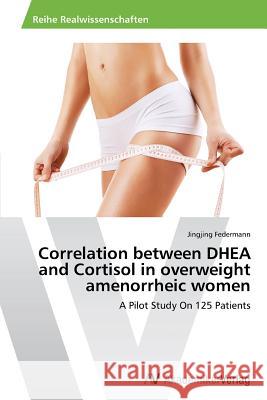Correlation between DHEA and Cortisol in overweight amenorrheic women » książka
Correlation between DHEA and Cortisol in overweight amenorrheic women
ISBN-13: 9783639493627 / Angielski / Miękka / 2014 / 116 str.
This thesis includes a study of 125 patients which was conducted at the department of obstetrics and gynecology of the general hospital of Vienna (AKH Wien), division of gynecology, endocrinology and reproductive medicine under the survey of Prof. DDr. Johannes Huber. The thesis has confirmed a decline of dehydroepiandrosterone-sulfate (DHEA-S) levels corresponding to age. Also, in postmenopausal women, not only the total concentration of DHEA decreases, but also the circadian oscillations of DHEA-S concentrations flatten. The synthesis of cortisol shows no change in postmenopausal women. Conspicuous are the desynchronization of DHEA-S and cortisol levels in postmenopausal women and the statistically significant inverse correlation between the BMI and the levels of cortisol. On the other hand, there is no correlation between BMI and DHEA-S. The present study also shows that those hormonal disturbances that lead to amenorrhea do not affect the production of DHEA secretion in the adrenal gland. Likewise, the behavior of menstruation seems to have no effect on cortisol synthesis.
This thesis includes a study of 125 patients which was conducted at the department of obstetrics and gynecology of the general hospital of Vienna (AKH Wien), division of gynecology, endocrinology and reproductive medicine under the survey of Prof. DDr. Johannes Huber. The thesis has confirmed a decline of dehydroepiandrosterone-sulfate (DHEA-S) levels corresponding to age. Also, in postmenopausal women, not only the total concentration of DHEA decreases, but also the circadian oscillations of DHEA-S concentrations flatten. The synthesis of cortisol shows no change in postmenopausal women. Conspicuous are the desynchronization of DHEA-S and cortisol levels in postmenopausal women and the statistically significant inverse correlation between the BMI and the levels of cortisol. On the other hand, there is no correlation between BMI and DHEA-S. The present study also shows that those hormonal disturbances that lead to amenorrhea do not affect the production of DHEA secretion in the adrenal gland. Likewise, the behavior of menstruation seems to have no effect on cortisol synthesis.











